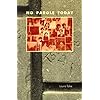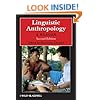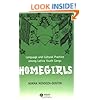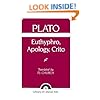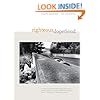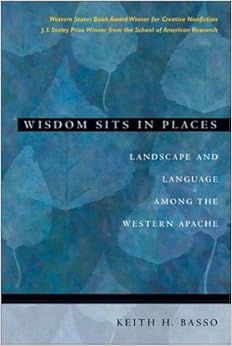
Wisdom Sits in Places
and over one million other books are available for Amazon Kindle. Learn more


Flip to back
Flip to front

Wisdom Sits in Places: Landscape and Language Among the Western Apache Paperback – August 1, 1996

$21.69
FREE Shipping on orders over $35.
In Stock.
Ships from and sold by Amazon.com.
Gift-wrap available.
NO_CONTENT_IN_FEATURE
Start reading Wisdom Sits in Places on your Kindle in under a minute.
Don't have a Kindle? Get your Kindle here, or download a FREE Kindle Reading App.
Don't have a Kindle? Get your Kindle here, or download a FREE Kindle Reading App.
Product Details
Would you like to update product info or give feedback on images?.
|
Editorial Reviews
From Library Journal
Basso, an anthropologist who has done fieldwork among the Western Apache of Arizona for over 30 years, provides a fascinating scholarly study of the meaning and significance of the Apache place names found in the area surrounding the community of Cibecue, Arizona. Some Apache place names describe features of the landscape or climate, while others derive from historical or mythological events. All, however, are rich in descriptive imagery and depth of meaning for the Apache people of the area. With the help of several Apache informants, Basso explores the place worlds underlying the names of localities and through them lets the Apache express their own understanding of their history, identity, values, and morality. This work, which won the Western States Book Award for creative nonfiction, is a valuable contribution to anthropological studies of place and location. At the same time, it provides a sensitive perspective on the Apaches' understanding of themselves. A useful addition to anthropology and linguistics collections in academic libraries.?Elizabeth Salt, Otterbein Coll. Lib., Westerville, Ohio
Copyright 1996 Reed Business Information, Inc.
Copyright 1996 Reed Business Information, Inc.
Review
"This brilliant book on linguistic awareness of local landscapes is a gem." --(Arizona Republic )
More About the Author
Discover books, learn about writers, read author blogs, and more.
Customer Reviews
Most Helpful Customer Reviews
36 of 38 people found the following review helpful
By
A. Bayes
on November 30, 2004
Format: Paperback
Comment
Sending feedback...
What do people make of places? This is the central question examined by Keith Basso in his ethno-linguistic study of the relationship between language and landscape among the Apaches of Cibecue, on the Fort Apache Reservation in central Arizona. Basso, a professor of Anthropology at the University of New Mexico, has spent over 30 years conducting field work among the Western Apaches. His publications concerning this group include articles on language, patterns of silence in social interaction, witchcraft beliefs, and ceremonial symbolism, among others. The idea for Wisdom Sits in Places stemmed from a study conducted between 1979 and 1984, in which Basso, with the help of a grant from the National Science Foundation and the guidance of the Apaches, conducted a study of Apache places and place-names; how the Apache refer to their land, the stories behind the place-names, and how these place-names are used in daily conversation by Apache men and women. The result is a stunningly informative account of the use of landscape and language in the social interactions of the Western Apaches.
Basso divides his book into four sections: Quoting the Ancestors, Stalking with Stories, Speaking with Names, and Wisdom Sits in Places. Each chapter's focus is to examine how landscape and language serve distinct purposes in Western Apache society. Basso incorporates the oral history of, and discussions with, local Apaches, as well as his formal training as an ethnographer-linguist, to explain the underlying themes of this book.
First, Basso introduces the reader to the idea of place-names and in the Western Apache construction of history.Read more ›
Basso divides his book into four sections: Quoting the Ancestors, Stalking with Stories, Speaking with Names, and Wisdom Sits in Places. Each chapter's focus is to examine how landscape and language serve distinct purposes in Western Apache society. Basso incorporates the oral history of, and discussions with, local Apaches, as well as his formal training as an ethnographer-linguist, to explain the underlying themes of this book.
First, Basso introduces the reader to the idea of place-names and in the Western Apache construction of history.Read more ›
Thank you for your feedback.
If this review is inappropriate, please let us know.
Sorry, we failed to record your vote. Please try again
10 of 10 people found the following review helpful
By
A Customer
on December 17, 1997
Format: Paperback
Comment
Sending feedback...
Keith Basso weaves together a work of anthropology that thoroughly explores the importance of place-naming in Western Apache culture. He provides the reader with vignettes of his informants that serves his greater thesis quite well. The reader has the sense of the integration of place-naming in the culture through these vignettes. Superb!!!
Thank you for your feedback.
If this review is inappropriate, please let us know.
Sorry, we failed to record your vote. Please try again
13 of 14 people found the following review helpful
By
grasshopper4
on January 26, 2004
Format: Paperback
Comment
Sending feedback...
Basso's writing is extraordinary. This great book consists of engaging articles that merge linguistics with cultural anthropology in an approach called the "ethnography of speaking." Placing this jargon aside, the approach is to demonstrate how Apaches use names, stories, and other ways of speaking to create and maintain their culture. Basso's work provides deep insight into Apache life, and it also serves as a model for ways to understand how language plays an important role in everyday life.
Thank you for your feedback.
If this review is inappropriate, please let us know.
Sorry, we failed to record your vote. Please try again
6 of 6 people found the following review helpful
By
Jim Franzen
on September 13, 2007
Format: Hardcover
Comment
Sending feedback...
What do people make of places? Basso's opening sentence is a good example of what the Apache call `letting one's mind have room'. As we read through the chapters of the book Basso continues to add layers to the meaning of this opening question. It allows us to reflect on various uses of the word `make'. We make sense of places by interpreting them. We make places intelligible by foregrounding them. We make use of places; as sign posts or land-marks through the use of descriptive naming. We make places or constitute them as sites or repositories of learning; we invest them as placeholders for morality tales or homilies. We make places vital; we invest them with agency, we enchant them, animate them, in the spirit of golems; we take a piece of earth and through magic or metaphysics we bring it alive, giving it a mission and a life of its own.
Wisdom sits in places. The Apache are a good example of virtue ethics. This is a theory of ethics, usually based on Aristotle's Nicomachean Ethics, which argues against an ethical universalism and in favor of a particularism. It foregoes the quest for nomothetic foundations and looks instead to the development of certain skills or character traits. Aristotle created a catalogue of areas of behavior or traits with a continuum of possible dispositions. The virtuous behavior was the means between the two extremes of each continuum. Thus the virtue of bravery was somewhere in the range between cowardice and foolhardiness or irrational voluntarism in the face of impossible odds or a meaningless risk.
Aristotle's concept of phronesis finds an interesting parallel in the Apache moral imagination.Read more ›
Wisdom sits in places. The Apache are a good example of virtue ethics. This is a theory of ethics, usually based on Aristotle's Nicomachean Ethics, which argues against an ethical universalism and in favor of a particularism. It foregoes the quest for nomothetic foundations and looks instead to the development of certain skills or character traits. Aristotle created a catalogue of areas of behavior or traits with a continuum of possible dispositions. The virtuous behavior was the means between the two extremes of each continuum. Thus the virtue of bravery was somewhere in the range between cowardice and foolhardiness or irrational voluntarism in the face of impossible odds or a meaningless risk.
Aristotle's concept of phronesis finds an interesting parallel in the Apache moral imagination.Read more ›
Thank you for your feedback.
If this review is inappropriate, please let us know.
Sorry, we failed to record your vote. Please try again
9 of 11 people found the following review helpful
By
yanipoo
on July 16, 2000
Format: Hardcover
Comment
Sending feedback...
Basso explores and explains how the land is an intergral part of the Native American Apache existence. How the Apache views geography very differently from our western ideas of maps because not only do places have functions they also have morals. These morals comes of the situation that happenned at the specific location.
It is a fascinating look at a part of Anthropolgy that is seldom explored. Easy to read, with wonderful personal stories of how the people interact with their land. Although the concepts tackled maybe unfamiliar the way it is written makes is so simple to understand.
Outside it being great book acedemically, the lessons and morals in the book touches one's soul. You learn about life as you learn about these people. Yet it never falls into the trap of new ageness. It stands strongly as a study I must stress.
This is the most enjoyable ethnograpy I have ever read for my BA. Unlike many other books, I kept this one for myself to dip into on a rainly day. Which is a testment on how good writing encourages learning. Should be on the reading list of every anthrpology student, as well as people interested in Native American people and alternative way of seeing the world.
It is a fascinating look at a part of Anthropolgy that is seldom explored. Easy to read, with wonderful personal stories of how the people interact with their land. Although the concepts tackled maybe unfamiliar the way it is written makes is so simple to understand.
Outside it being great book acedemically, the lessons and morals in the book touches one's soul. You learn about life as you learn about these people. Yet it never falls into the trap of new ageness. It stands strongly as a study I must stress.
This is the most enjoyable ethnograpy I have ever read for my BA. Unlike many other books, I kept this one for myself to dip into on a rainly day. Which is a testment on how good writing encourages learning. Should be on the reading list of every anthrpology student, as well as people interested in Native American people and alternative way of seeing the world.
Thank you for your feedback.
If this review is inappropriate, please let us know.
Sorry, we failed to record your vote. Please try again
